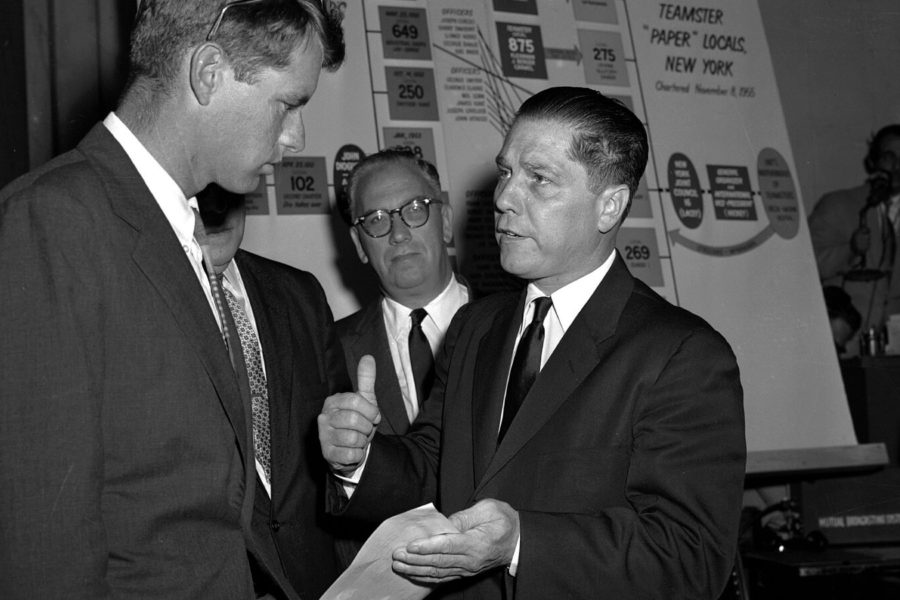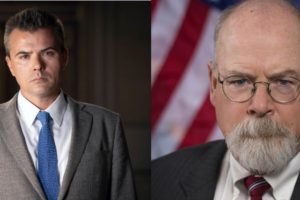Below is my article published in yesterday’s The American Spectator. It discusses the Canadian truckers’ protests against provincial and federal Covid mandates and the dictatorial repressive measures Prime Minister Justin Trudeau used to crush the protesters.
My first hand knowledge of Canada dates back to the 1970s while I was assigned to the Justice Department’s Buffalo Organized Crime Strike Force. Back then, it was common for U.S. and Canadian citizens to cross the border to dine out, go shopping and play tourist.
Professionally I worked with the Royal Canadian Mounted Police on a series of mob-related investigations. In the process, I became friends with a number of Mounties.
As with most uniformed police services, the Mounties held military style ranks. All of my RCMP friends and colleagues were non-commissioned officers. They were smart, excellent investigators, good company and high spirited lads.
Whenever I traveled to Toronto on official business, the Mounties had a firm policy. My first 24 hours in town had to be devoted to alcohol-centric social activities. It usually started at the NCO club at the RCMP’s Toronto headquarters and from there became a city-wide pub crawl.
Only after the drinking was out of the way did we get down to the much less entertaining business of chasing mobsters.
But, once work was done, we would return to the NCO club and the bars.
Are you sensing a pattern here?
Once in a while during these excursions, I would perform my imitation of the final scene of every television episode of Sergeant Preston of the Yukon.
For those of you who weren’t around in the 1950s or who had deprived childhoods devoid of Sergeant Preston, click on this picture to see what I’m talking about:
At the end of each episode Sergeant Preston would pat his dog and say, “Well, King, this case is closed!” Yukon King the Wonder Dog would bark, and then the screen would cut to a Quaker Puffed Wheat (“They’re Shot from Guns!) commercial.

When I would announce to my Mountie pals that the case was closed, they would would stand in for Yukon King the Wonder Dog by barking in reply.
Yeah, I get it. In retrospect it isn’t that funny. But you might feel differently if you had been there with us getting tanked to the gills.
On one memorable occasion, as my pals were preparing to move from one bar to the next, I announced that I had to depart for home. I explained that my wife was expecting me back before midnight.
Hey, they explained, that’s no problem, eh? One of them (a red headed corporal who shall remain nameless) pulled out his handcuffs and announced that he was arresting me in the name of the Queen.
Another corporal (who shall also remain nameless) then called my wife. Here’s what he said.
“Mrs. Parry, this is Corporal [name withheld] of the RCMP. Please do not be alarmed. Your husband has had bit too much to drink and, for his safety, we have detained him at our barracks. He’s well and will be released in the morning.”
That out of the way, they dragged me, still under arrest, to the next watering hole.
The following morning they turned me loose so that I could go home and face my wife. I wasn’t amused, but they sure were. Mountie humor. Ha. Ha.
In those long ago days, crossing the border was a simple matter with few formalities. Of course, being able to flash a badge at the checkpoints aided the process. But trips to Canada – with or without badge or Mounties – were always fun, and the people were welcoming.
But that was then, and, as I have learned in recent years, things have changed for the worse in the Great White North. I could do an entire article about the changes, but that will have to wait. For now, suffice it to say that Justin Trudeau and his tyrannically woke regime are symptomatic of what ails today’s Canada.
As in the U.S., there is a bitter divide between Canada’s managerial elite and its blue collar workers and middle class which has been exacerbated by government-decreed Covid lockdowns and mandates. The blue collar workers and middle class have disproportionately borne the social and economic burdens imposed by those restrictions.
Which brings us to the article. Here it is.
Canada’s Trucker Convoy Could Be Coming to D.C. – The American Spectator | USA News and Politics
If the ongoing story of the Canadian truckers’ protest was a Victorian novel, we would be at “Chapter Three — Young Lord Poncebottom Uses His Riding Crop to Chastise the Impudent Stable Hands.” But it’s no such thing. Instead, it’s the reality of Canada in 2022 where Prime Minister Justin Trudeau and his elitest political supporters are desperately trying to beat the rebellious working class into submission.
Canadian truckers have peacefully protested Covid vaccine mandates by blockading and impeding traffic flow at crossing points on the U.S. border and parking their trucks on the streets around Parliament in Ottawa.
In reprisal, Trudeau invoked Canada’s Emergencies Act to criminally charge and detain the protesters and financially destroy them. Under the Act, the Canadian government — without resort to judicial process — suspended the protesters’ rights to free movement and assembly, arrested and detained them, suspended their bank accounts and their vehicle insurance.
In addition, those who donated to support the protesters faced seizure of their bank accounts.
Canada’s Minister of Finance, the Harvard-educated Chrystia Freeland, announced that financial institutions had been authorized to suspend or freeze personal or corporate accounts that they believed were being used to fund illegal protests. She warned non-demonstrating truck owners that, if their vehicles were used in a protest, their accounts could also be frozen.
She required crowd-funding sites and online payment providers to register with the government and to report any “suspicious” donations.
“We are making these changes because we know that these platforms are being used to support illegal blockades and illegal activity which is damaging the Canadian economy,” she said.
Simultaneously, in declaring the national emergency, Trudeau said during a news conference in Ottawa, “This is about keeping Canadians safe, protecting peoples’ jobs and restoring faith in our institutions.”
But the Emergencies Act defines a “national emergency” as an “urgent and critical situation of a temporary nature that cannot be effectively dealt with under any other law of Canada.” And, in that regard, before Trudeau’s declaration of emergency and invocation of the Act, the police already had peacefully resolved the blockades at the border. Only the peaceful, party-like Ottawa encampment — complete with trucks, inflatable bouncy castles, mobile saunas, tents and charcoal grills — remained.
Did the Ottawa occupation constitute an “urgent and critical situation” that could not be “effectively dealt with under any other law of Canada”?
Moreover, once the police arrested the Ottawa demonstrators and the trucks, bouncy castles, and saunas were removed, was Canada still facing a crisis?
Parliament seemed to think so. By majority vote it endorsed Trudeau’s continuing use of the Act to crush the protesters and their supporters.
Why?
The protesting truckers dramatically exposed a critical chokepoint in the Canadian economy and, for that matter, the economies of developed nations around the world. They did so by acting on the threat made by the late Jimmy Hoffa in a convention speech to the International Brotherhood of Teamsters in which he explained the facts of life to America and specifically to his nemesis, Attorney General Robert Kennedy. Quoth Hoffa:
If you’ve got it, a truck brought it. If you’ve got your food, your clothing, your medicine, fuel for your homes, fuel for your industries, a truck brought it. The day our trucks stop, America stops!
This speech confirmed Kennedy’s belief that Hoffa was the most dangerous man in America.
But, even if Hoffa was a corrupt thug, he was absolutely right about the critical economic role played by truckers. And, further to that point, the peacefully protesting Canadians forcefully demonstrated the truth of Hoffa’s words.
Those who participated in the demonstrations were a relatively small portion of the total number of Canadian drivers. Nevertheless, they brought significant segments of the Canadian and U.S. economies to a grinding halt by merely parking their rigs at inconvenient locations.
In so doing, they undoubtedly alarmed Trudeau and his elitist supporters as to the potential disaster posed by future and quite possibly larger and more aggressive trucker protests.
And what if the truckers’ rebellious spirit spread to other trades?
If the preening, self-regarding managerial elites went on strike, latte and canape sales might suffer. But what if those reviled non-elite underlings who make things, harvest crops, do actual physical work, and transport goods decided to withhold their labor? What then?
Although the Emergencies Act purports to empower the government to compel citizens to provide services in return for “reasonable compensation,” how — short of calling out the military to force compliance — would that work in the face of widespread resistance? And would Parliament continue to back Trudeau under those circumstances?
For now, that question will remain unanswered. After massive criticism of his actions, Trudeau has suddenly undeclared the alleged national emergency and revoked his invocation of the Emergencies Act. He is now confident that other laws are sufficient to maintain order.
But before changing course, Trudeau used the Act to make clear that he has the power and willingness to destroy anyone who opposes his regime. Disaffected Canadians should take heed, shut their mouths and do as they are told.
Trudeau’s jihad against the truckers and their supporters appears to be driven by fear of the economic disruptions that would be caused by future protests and is calculated to eradicate the possibility of further resistance.
Will Trudeau’s tyranny cow Canada’s working class? Or will it backfire and result in larger and more aggressive labor troubles?
To a great extent, the truckers have already won. As the protests were underway, a number of Canada’s provinces abruptly rescinded their previously sacrosanct Covid restrictions.
But, beyond those victories, the Canadians are being emulated around the world. In the U.S., the Peoples Convoy of trucks has called on the federal government to end the so-called National Emergency enacted at the beginning of the pandemic. The convoy reportedly consists of more than two dozen 18 wheelers, 50 pick up trucks and recreational vehicles, and will be joined by approximately 25 similar convoys all of which are under way and converging on Washington.
The Fort Pelosi barricades have been re-erected around the Capitol. Secretary of Defense Lloyd Austin has approved the Capitol Police and District of Columbia government’s request for the National Guard.
Mayor Muriel Bowser has put 500 police officers on standby for riot duty.
In short, Washington is in full panic mode and bracing for an invasion.
But leaders of some of the convoys have stated that, instead of entering Washington, they will be blocking the Capital Beltway and roads in and out of the city. The chaos and disruption that would cause is incalculable.
“The fact is we have a government that tries to push us around,” one trucker told the Los Angeles Times. “At this moment, we are living without our Constitution. Our Constitution means nothing right now.”
The fuse has been lit, and the deplorables in their trucks are on their way to the Seat of Government. January 6, 2021 may turn out to have been a mere warm up for the massive governmental disruption that is about to unfold.
And for that we owe our thanks to the humble and peaceful Canadian truckers.
George Parry is a former federal and state prosecutor. He blogs at knowledgeisgood.net and may be reached by email at kignet@outlook.com.



3 Comments
Leave your reply.